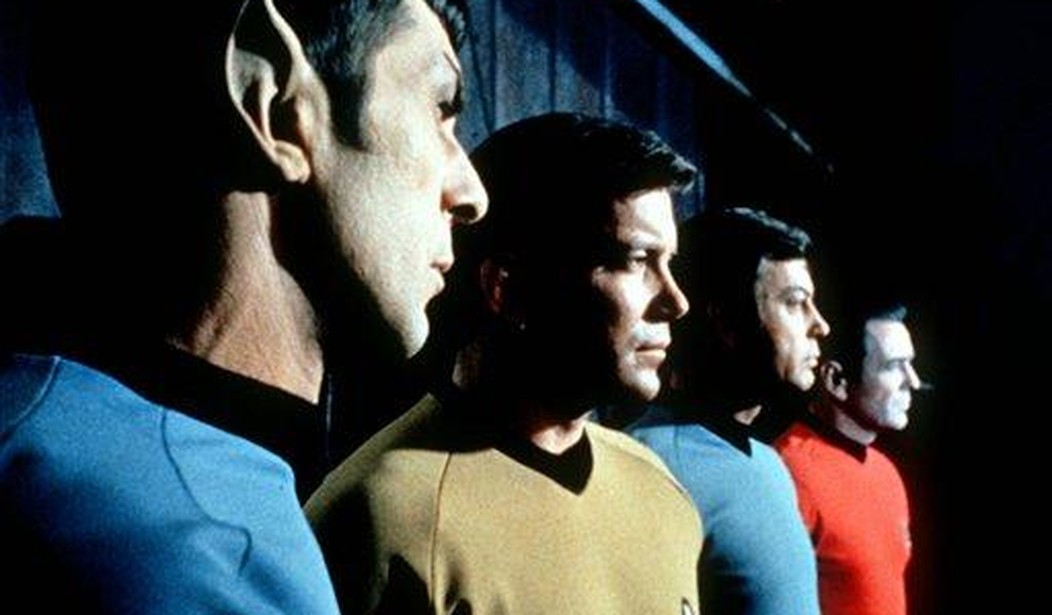How cool is this?
So now I can say something. Yes, it’s true; I’m going to be a “rocket man!” 😝🤣 https://t.co/B2jFeXrr6L
— William Shatner (@WilliamShatner) October 4, 2021
Shatner will take off for a sub-orbital flight on Wednesday aboard a New Shepard launch vehicle, built by Blue Origin, Amazon founder Jeff Bezos’ space business. He will be the oldest person ever to go into space at age 90. He will ascend about 63 miles into outer space and be weightless for about four minutes. Beyond that, Shatner should get a grand view of the Texas coast and the Gulf of Mexico.
And Bezos is hoping Shatner will singlehandedly send space tourism to the next level.
It’s a stunt, of course. In fact, space tourism is little more than an ego trip for billionaires. But Bezos is looking beyond tourism at the vast potential for private space ventures in manufacturing and mining.
But he can’t get there without capital. A few dozen billionaires ponying up a couple of tens of millions of dollars each (the crew seat on the first flight sold for $28 million) would be some nice seed money to attract real investors to realize his space dreams.
Other billionaires with dreams of space travel have met with varying degrees of success. Elon Musk has been making some genuine contributions to private space ventures with his SpaceX program. But Virgin Galactic’s Richard Branson has had only one successful flight and has been slowed by design problems.
Now it’s Jeff Bezos playing the role of carnival barker hoping to ignite widespread interest in space travel for civilians. Will the idea pay off in the long run?
The techno-optimism of that idea — that some of today’s toys for the wealthy will one day be taken for granted by millions — is not without precedent. But it’s also recognizably a product pitch as well as an insistent attempt to assure the public that things aren’t just what they look like today, which is the ultrarich selling flights to space to the slightly less rich. Appeals that the private space industry of the United States is the country’s best hedge against growing space programs in other countries double, even for those who find them persuasive, as sour reminders of general national institutional decline.
Both Bezos and Branson appear to be wildly optimistic. As long as it costs $3,000 a pound to launch a living human into space, only the incredibly rich will be able to afford the trip. At first, private space enthusiasts believed that filling the sky with rockets taking humans to orbit or the moon would bring the cost down. SpaceX has lowered the price considerably from about $8,000 a pound to launch a shuttle to a little more than $3,000 a pound today. But when you’re looking at 175,000 pounds for a launch vehicle, going into space remains pricey.
Eventually, we’ll figure it out. Until then, Shatner is understandably “terrified” of flying into space.
Shatner said that he was offered the opportunity to fly on one of Blue Origin’s crewed missions by Jeff Bezos, the company’s founder, who flew on the first crewed flight of the New Shepard system in July.
“‘You’ll be the oldest guy in space,'” Shatner said Bezos told him, adding that his own response was. “I don’t want to be the oldest guy in space. I’m Captain Kirk!”
Shatner touched on his other ties to the world of space, citing his interview with physicist Stephen Hawking on the show, “Raw Nerve,” which may have been the scientist’s last interview before his death.
There will be accidents, tragedies — both preventable and inevitable — but eventually human beings will get off this rock.
If we can avoid destroying ourselves first.










Join the conversation as a VIP Member